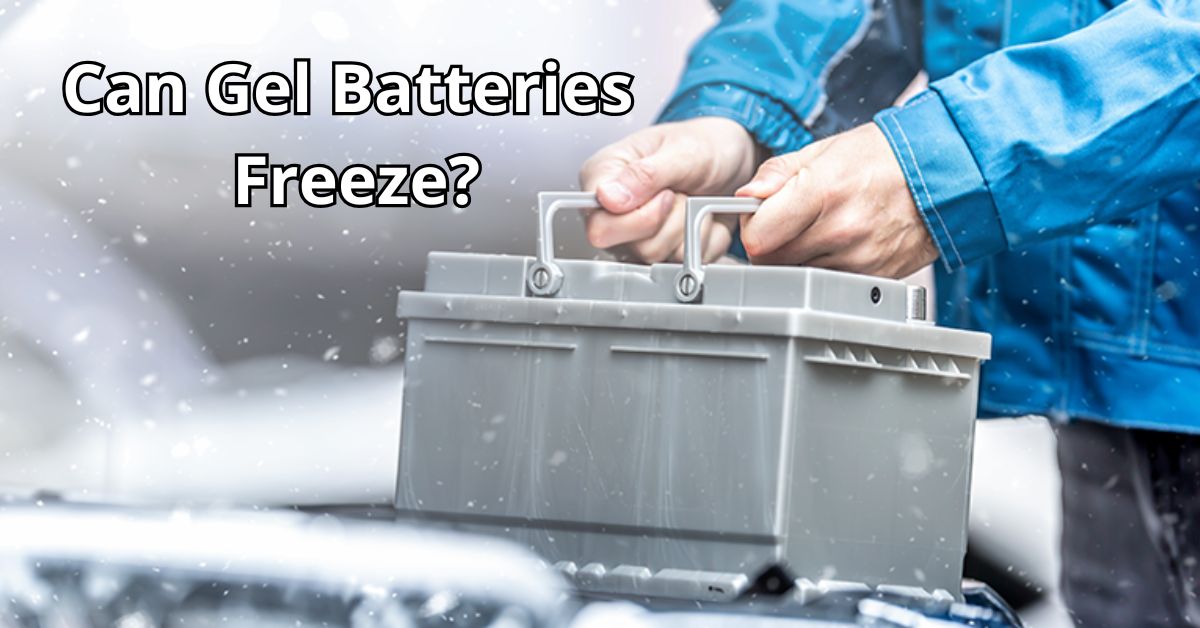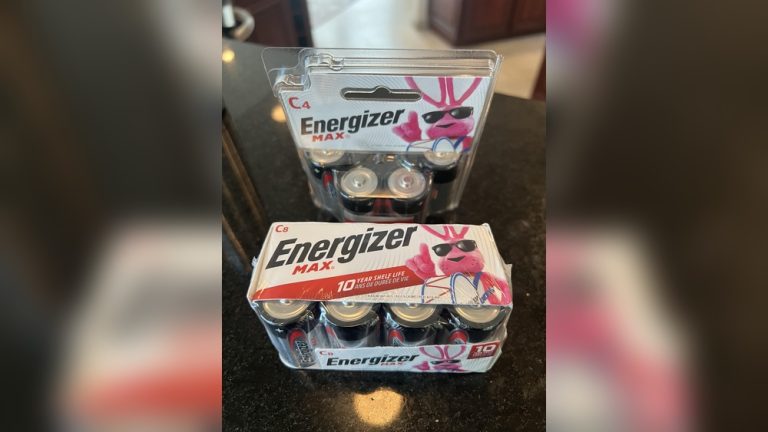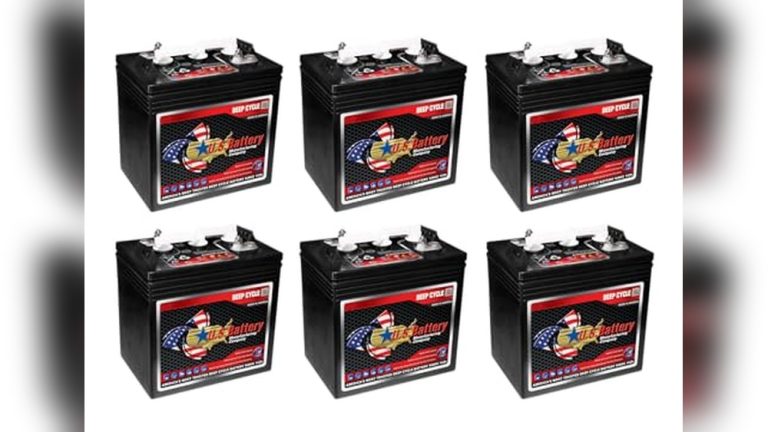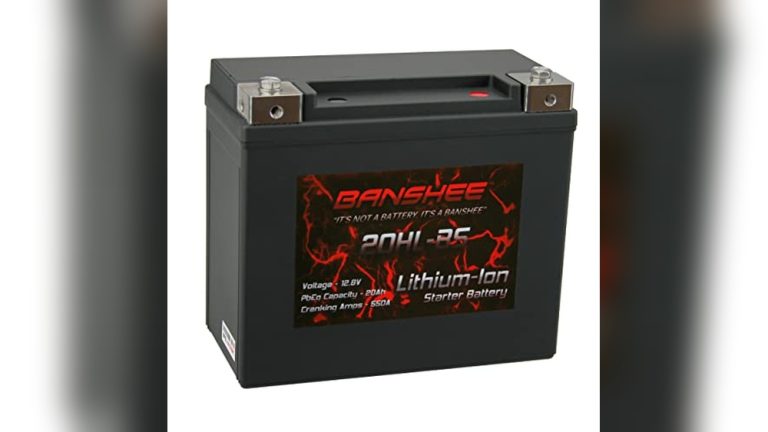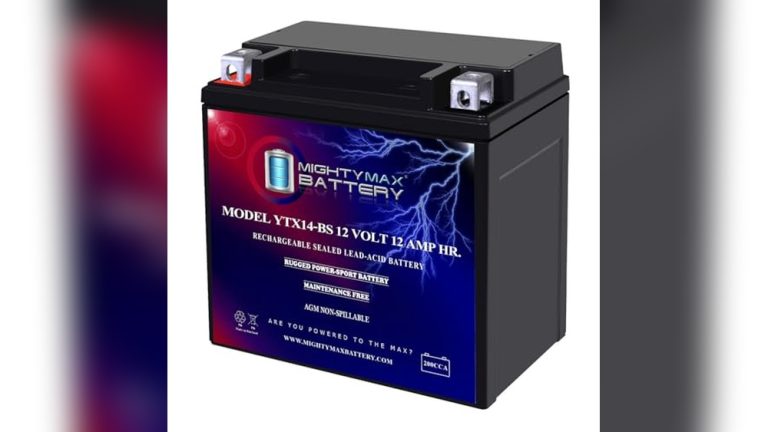Can Gel Batteries Freeze: Everything You Need to Know
Yes, gel batteries can freeze under extremely cold conditions. Unlike regular batteries, their gel-like electrolyte can solidify.
Gel batteries are a popular choice for many due to their durability and low maintenance. But, extreme cold can impact their performance. In this post, we’ll explore how freezing temperatures affect gel batteries. We’ll also discuss ways to protect them from the cold.
Understanding these factors can help you maintain the longevity and efficiency of your gel batteries. So, let’s dive into the specifics and ensure your batteries stay in top shape, even in the coldest weather.

Credit: www.batteriesplus.com
Introduction To Gel Batteries
Gel batteries are a type of lead-acid battery that use a gel-like electrolyte. They are known for their durability and reliability. These batteries are often used in a variety of applications, from backup power systems to renewable energy storage.
Unlike traditional lead-acid batteries, gel batteries do not leak. They are also maintenance-free, making them a popular choice for many users.
What Are Gel Batteries?
Gel batteries are a subtype of sealed lead-acid batteries. They contain a silica-based gel that immobilizes the electrolyte. This gel prevents leakage and reduces the risk of spills.
These batteries are sealed and have valve-regulated vents. This means they do not require regular maintenance. They are often used in situations where reliability is crucial.
How Gel Batteries Work
Inside a gel battery, the electrolyte is suspended in a gel-like substance. This gel allows the ions to move freely between the plates. This movement creates an electrical charge.
When the battery discharges, the ions flow from the negative plate to the positive plate. Charging reverses this flow, restoring the battery’s energy. The sealed design keeps the electrolyte from evaporating or leaking.
This makes gel batteries very safe and reliable. They are ideal for use in harsh or sensitive environments.
Benefits Of Gel Batteries
Gel batteries offer several advantages compared to other types of batteries. They are reliable, durable, and efficient. This makes them a popular choice for various applications. Let’s explore some of the key benefits of gel batteries.
Long Lifespan
One major benefit of gel batteries is their long lifespan. They can last for many years with proper care. Their design minimizes wear and tear. This helps them serve longer than traditional batteries.
Gel batteries can handle deep discharges. This means they can be discharged and recharged many times without damage. This is ideal for applications that require frequent use.
Low Maintenance
Gel batteries require very low maintenance. They do not need regular water refills. This is because the electrolyte is in gel form. It does not evaporate or spill like liquid electrolytes.
They are also sealed and do not leak. This makes them safer and cleaner to use. Routine checks are minimal, reducing the hassle for users.
| Feature | Gel Batteries |
|---|---|
| Maintenance | Low |
| Lifespan | Long |
| Safety | High |
Common Uses Of Gel Batteries
Gel batteries are versatile and reliable. Their durability and low maintenance make them popular. These batteries are used in various industries due to their unique properties. Let’s explore some common applications of gel batteries.
Automotive Applications
Gel batteries are often used in vehicles. Their design makes them safe and efficient. Gel batteries are leak-proof and can function in any position. This makes them ideal for motorcycles and ATVs.
Here’s why gel batteries are preferred in automotive applications:
- Vibration Resistant: They can withstand vibrations better than traditional batteries.
- Longer Lifespan: Gel batteries last longer, reducing the need for frequent replacements.
- Maintenance-Free: They do not require regular water refilling.
Renewable Energy Systems
Gel batteries play a crucial role in renewable energy systems. They store energy from solar panels and wind turbines. Their reliability and efficiency make them perfect for these applications.
Advantages of using gel batteries in renewable energy systems include:
- Deep Discharge: Gel batteries handle deep discharge cycles, making them ideal for solar applications.
- Temperature Tolerance: They perform well in varying temperatures, ensuring consistent power supply.
- Reduced Maintenance: These batteries require less maintenance, making them cost-effective.
Overall, gel batteries are a great choice for renewable energy storage. They help in maintaining a steady power supply and reducing dependency on the grid.
Freezing Point Of Gel Batteries
Understanding the freezing point of gel batteries is essential for those using these batteries in cold climates. Gel batteries are a type of lead-acid battery with a gel-like electrolyte. This gel prevents leaks and provides stable performance even in harsh conditions. But can they freeze?
Temperature Tolerance
Gel batteries have a high tolerance for temperature extremes. They operate efficiently in temperatures ranging from -20°C to 50°C. Freezing occurs at a much lower temperature compared to other battery types. The gel inside helps prevent freezing, ensuring reliable performance in cold weather.
Comparing To Other Batteries
How do gel batteries compare to others in terms of freezing?
| Battery Type | Freezing Point | Temperature Range |
|---|---|---|
| Gel Batteries | Below -20°C | -20°C to 50°C |
| AGM Batteries | Around -15°C | -15°C to 45°C |
| Flooded Lead-Acid Batteries | 0°C | 0°C to 40°C |
Clearly, gel batteries have a lower freezing point compared to AGM and flooded lead-acid batteries. This makes them more suitable for extreme cold conditions.
In summary:
- Gel batteries freeze below -20°C.
- They work well in a broad temperature range.
- They outperform other batteries in freezing conditions.
Choosing the right battery depends on your specific needs and the climate you operate in.
Effects Of Freezing On Gel Batteries
Gel batteries are a popular choice for many applications, from renewable energy systems to marine use. However, they are not immune to the effects of freezing temperatures. Understanding how cold weather impacts these batteries is crucial for maintaining their performance and longevity.
Performance Impact
When gel batteries are exposed to freezing temperatures, their performance can suffer significantly. The cold weather slows down the chemical reactions inside the battery. This reduction in activity means the battery may not deliver the same level of power.
In very cold conditions, you may notice a drop in the battery’s capacity. This means the battery will not last as long on a single charge. In extreme cases, the battery might not work at all until it warms up.
Potential Damage
Freezing temperatures can also cause physical damage to gel batteries. The electrolyte inside the battery can freeze and expand. This expansion can crack the battery case or damage the internal components.
Repeated freezing and thawing cycles can worsen this damage. Over time, the battery may become less reliable and need to be replaced sooner. Proper storage and insulation can help prevent these issues.
| Temperature Range | Impact on Battery |
|---|---|
| Above Freezing | Normal Operation |
| 0°C to -10°C | Reduced Capacity |
| Below -10°C | Risk of Physical Damage |
Taking steps to protect your gel batteries from freezing temperatures can extend their life and ensure they perform well when needed.
Preventing Gel Batteries From Freezing
Gel batteries are popular for their durability and efficiency. But they can freeze in cold temperatures. Frozen batteries can get damaged and lose their efficiency. So, it is important to protect them. Here are some tips to prevent your gel batteries from freezing.
Proper Storage Tips
Proper storage is key to keeping your gel batteries safe. Store your batteries in a cool, dry place. Avoid places with extreme temperatures. Avoid direct sunlight. It’s best to store them in a temperature-controlled area.
Keep the battery terminals clean and free from corrosion. Check the battery charge regularly. A fully charged battery is less likely to freeze. Use a battery maintainer to keep the charge level stable.
Using Insulation
Insulation can help protect your gel batteries from freezing. Wrap the batteries in an insulating material. You can use foam, blankets, or battery insulation kits. This helps maintain the battery temperature.
Place the insulated battery in a battery box. This adds another layer of protection. Keep the box in a sheltered area away from wind and snow. Avoid placing the battery directly on cold surfaces. Use a wooden board or rubber mat to elevate it.
| Storage Tips | Insulation Tips |
|---|---|
| Store in a cool, dry place | Wrap in insulating material |
| Avoid direct sunlight | Use a battery box |
| Keep terminals clean | Elevate from cold surfaces |
Follow these tips to keep your gel batteries safe and functional. Protecting them from freezing is essential for their longevity.
Signs Of A Frozen Gel Battery
A frozen gel battery can cause significant issues. Knowing the signs of a frozen gel battery is essential for maintaining battery health. This section will help you understand how to identify symptoms and test for a frozen gel battery.
Identifying Symptoms
A frozen gel battery often shows specific symptoms. The most common sign is a decrease in performance. Your battery may not hold a charge as well as it did before. Slow cranking of the engine is another sign. If your vehicle struggles to start, the battery might be frozen.
Another symptom is swelling or cracking in the battery case. A frozen battery expands, causing visible damage to the case. Check for any leaks around the battery. Gel batteries contain electrolyte gel that can leak when frozen. Leaks are a clear sign of internal damage.
Testing Methods
Testing a gel battery for freezing is straightforward. Start by using a voltmeter. A healthy gel battery should read between 12.6 and 12.8 volts. A lower reading can indicate a problem, possibly freezing.
Perform a load test if the voltage seems low. This test measures the battery’s ability to hold a charge under load. Connect the battery to a load tester and apply a load for 10 seconds. A voltage drop below 9.6 volts during the test signals a weak or frozen battery.
Visual inspection is also crucial. Look for physical damage like swelling, cracks, or leaks. These are telltale signs of a frozen battery. Always wear protective gear while inspecting to avoid injury from leaks.
What To Do If Your Gel Battery Freezes
Discovering that your gel battery has frozen can be alarming. Freezing can cause significant damage to the battery. If you act quickly, you might save it. Here’s what to do if your gel battery freezes.
Thawing Safely
First, remove the battery from the vehicle or device. Place it in a warm environment. Avoid direct heat sources. Let the battery thaw naturally. Check the battery for any visible damage. Cracks or leaks mean the battery is not salvageable. If the battery appears intact, proceed to the next step.
Once thawed, clean the terminals. Use a mixture of baking soda and water. This will neutralize any acid. Ensure the terminals are dry before reconnecting the battery. Test the battery voltage with a multimeter. A healthy battery should read between 12.6 and 12.8 volts. If the reading is lower, charge the battery slowly.
When To Replace
If the battery shows physical damage, replace it immediately. A damaged battery poses safety risks. If the voltage does not improve after charging, it might be time for a replacement. Consistent low voltage readings indicate internal damage. This means the battery won’t hold a charge effectively.
Consider the age of the battery. Most gel batteries last 3 to 5 years. If yours is older, a new battery might be a better investment. Always dispose of old batteries safely. Many auto shops offer recycling services.
Regular maintenance can prevent freezing issues. Keep your battery clean and charged. Store it in a cool, dry place. This ensures a longer battery life and better performance.
Maintaining Gel Batteries In Cold Climates
Gel batteries are reliable and efficient for various applications. But, they need proper care in cold climates. Cold temperatures can affect their performance. Let’s explore some key practices for maintaining gel batteries in cold climates.
Regular Maintenance
Routine checks are essential for gel batteries. Inspect the terminals and connections. Ensure they are clean and tight. Corrosion can impact performance. Use a brush and baking soda solution to clean any buildup.
Check the battery voltage regularly. It should be within the recommended range. Use a multimeter for accurate readings. Keep the battery charged. A fully charged battery is less likely to freeze.
Seasonal Adjustments
Adjustments are crucial during different seasons. In winter, keep the battery in a warm place. Avoid exposing it to freezing temperatures. Use an insulated battery box if necessary.
Consider using a battery maintainer. It keeps the battery charged without overcharging. This helps maintain optimal performance during cold weather. Store the battery in a cool, dry place during summer. Avoid excessive heat exposure.
In summary, proper care and regular checks can extend the life of your gel battery. Follow these tips to ensure your battery performs well, even in cold climates.
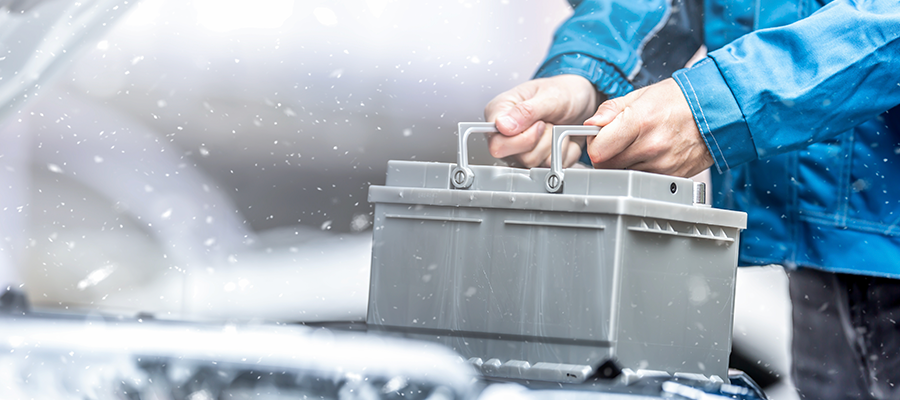
Credit: discoverbattery.com
Frequently Asked Questions
Can Gel Batteries Freeze In Winter?
Yes, gel batteries can freeze in winter. However, they are more resistant to freezing compared to other battery types. Proper insulation and storage can help prevent this.
At What Temperature Do Gel Batteries Freeze?
Gel batteries typically freeze at around -20 degrees Celsius (-4 degrees Fahrenheit). Keeping them in warmer environments prevents freezing.
How To Prevent Gel Batteries From Freezing?
To prevent gel batteries from freezing, store them in a temperature-controlled environment. Use battery warmers or insulation for extra protection.
Do Frozen Gel Batteries Get Damaged?
Yes, frozen gel batteries can get damaged. Freezing can cause the battery’s internal structure to crack, reducing its efficiency and lifespan.
Conclusion
Gel batteries can freeze under extreme conditions. They are more resistant than other batteries. Protect them during cold weather. Store in a warm place when temperatures drop. Maintain regular checks on their condition. This helps ensure optimal performance. Proper care extends their lifespan.
Always follow the manufacturer’s guidelines. Stay informed and prepared. Your gel batteries will serve you well.

